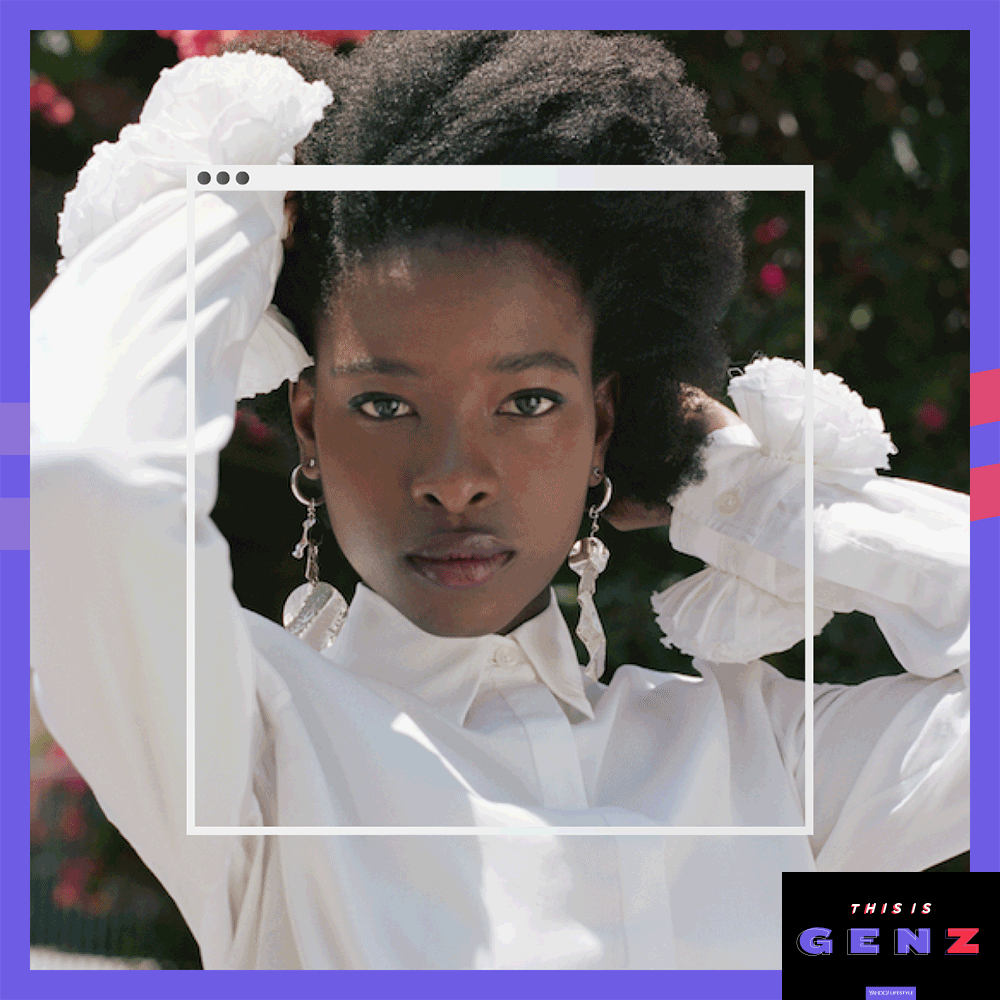America's 20-year-old youth poet laureate won't let 'small-minded prejudice' stop her

Amanda Gorman cites Malala Yousafzai, the 20-year-old Pakistani activist and Nobel Prize laureate, as inspiration, saying it was partially because of Malala that she pursued the path of becoming a youth delegate for the United Nations at the age of 16. Where Amanda really found her voice was in writing and in 2014, Amanda — a California native — became the Los Angeles Youth Poet Laureate. In 2017 she became the first National Youth Poet Laureate. At 20 years old, Amanda is a proud member of Generation Z, a Harvard student, and a poet — and she’s ready to change the world through words.
Name: Amanda Gorman
Age: 20
Favorite app: Instagram
What she does: I’m a student at Harvard University, and currently work as the United States Youth Poet Laureate, a community organizer, and an activist.
Three words she’d use to define Gen Z: Relentless. Woke. Unstoppable.
How poetry became a passion: I was writing since I can remember — I just didn’t know it was poetry yet, or that writing could be a career. Then, when I was around 7, my teacher read the class Dandelion Wine by Ray Bradbury, and I was hooked. I knew if I could work in the realm of metaphor and literature, the sky was the limit. It wasn’t until I was named Youth Poet Laureate of L.A. in high school though that I officially began calling myself a poet. I just always loved writing, period.

What she wishes older people understood about Gen Z: I hear a lot of, ‘This generation with their technology,’ a criticism which comes out of a truthful place — many in Gen Z were born into a fast-paced digital realm. But I also think that a lot of that finger-pointing, condemnation of Gen Z and their use of technology is (a) hypocritical, because it’s not just Gen Z, and (b) also robbing us of an opportunity to discuss the good that comes with it as well. It’s not the technology in itself, but how we’re using it that matters. We’re starting movements, demanding change, sharing resources, knowledge, and power.
How she thinks Gen Z will change the world: We’re already changing it! But as for the future, I foresee a world which is more creative, more open, more loving, more ecologically friendly, more honest about its history and progress, and I think a lot of those contributions will be made by young people.
Her greatest accomplishment (so far): I think obviously there’s being named the first Youth Poet Laureate of the United States, which was a real history-making moment in terms of giving young people the platforms they deserve. But I think, for me personally, that accomplishment exists in a wider pursuit that I’m most proud of, which is continuing in the tradition of storytelling outlined by my ancestors, and not letting race, gender, class, or small-minded prejudice stop me.
A post shared by Amanda Gorman (@amandascgorman) on Oct 16, 2017 at 12:06pm PDT
What she’ll be doing 10 years from now: So, 2028: Attending the Olympics in L.A.; writing a book; holding some local elected official position; teaching; trying to convince myself that I’m actually 30 and not 4 or 89.
What she’ll be doing 20 years from now: So, 2038: Being President of the United States of America, working in the Oval Office for a more actively, ecologically friendly United States, for more access to free education, and also working to ensure the equal rights of citizens are carried out through different levels of government; married to Chadwick Boseman or Chris Pine; and of course still writing poetry. There are going to be a lot of metaphors in my inaugural address.



